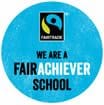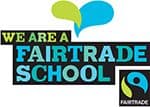N5 Computing Science
Course Overview
Web Design and development
This unit allows pupils to develop knowledge and an understanding of the analysis, design, implementation, testing and evaluation stages of creating a website.
Pupils will study the types of media files used for web pages and why compression is needed
Pupils will create their own web pages using the programming languages HTML and Javascript.
Pupils will learn to
- design a web site and web pages using low fidelity prototyping
- write in programming code to place text, audio and graphics onto a web page.
- created coded hyperlinks to link the pages together.
- understand and use code to activate events with movement of the mouse
- create cascading style sheets for use in a web page
WEB DESIGN AND DEVELOPMENT
- Able to develop websites using modern coding techniques (HTML, CSS, JavaScript)
- Understand how to integrate different media types and coding to produce multimedia, e.g. text, audio and graphics to create interactive web sites.
- Develop creativity skills by developing own websites which apply principles of good design by implementing cascading style sheets.
Software Development and Design
This unit allows pupils to develop knowledge and an understanding of the analysis, design, implementation, testing and evaluation stages of creating effective programs.
Pupils will create their own code using a programming languages called Livecode.
Pupils will learn
- to design their program using pseudocode, flowcharts and structured diagram
- to create their own programs using the software Livecode.
- the different data types that can be used
- concatenation and pre-defined functions
- to code decision making conditions and use repetition code to create useful programs.
- to create and traverse arrays which store lists of values
- to design and implement input validation
- to design and implement a running total within a loop
SOFTWARE DESIGN AND DEVELOPMENT
- Become confident in applying the fundamentals of computer programming techniques
- Design, create and test software solutions using problems solving skills
- Able to confidently tackle increasingly complex programming problems.
Computer Systems
This unit allows pupils to develop knowledge and an understanding of how a computer works.
Pupils will learn how:
- data is stored in the computer
- using binary to denary conversion and ffloating point form conversion
- colour depth for bit-mapped graphics and attributes for vector graphics
- the components of the processor -the ALU, Control Unit and registers
- data is sent from the processor to the memory using busses
- a high-level language like Livecode, SQL and HTML must be translated into machine code
- computer usage affects the environmentand security precauctions are used to prevent computer crime.
COMPUTER SYSTEMS
- Investigate technical components and functions of the latest digital devices.
- Able to explain how different types of digital data are represented in binary.
- Able to explain how data is kept secure within computer systems and across the internet.
Database design and development
This unit allows pupils to develop knowledge and an understanding of the analysis, design, implementation, testing and evaluation stages of creating a database.
Pupils will study linked database tables and the terms used to describe its components.
Pupils will create databases using the software FileMaker Pro. They will learn how to
- Design a linked database using a data dictionary
- create fields of the correct data type and import data into these fields
- program using the language SQL to carryout the following tasks:
- complex searching
- sorting on more than one field
- updating, deleting, inserting records
- using equi-join to link database tables together.
- create reports so that the layout of the resulting records are shown in the desired format.
DATABASE DESIGN AND DEVELOPMENT
- Able to develop relational databases which are relied upon and widely used across industry and web sites.
- Become confident in using SQL coding to perform database searches and other operations.
- Use recognised design techniques to plan effective database solutions and solve problems.
Methodology
Teacher-led discussion and cooperative group work are used to give pupils the opportunity to demonstrate and improve their knowledge, understanding and practical skills throughout the course.
In Computing department, we focus on active learning to make sure pupils are engaged and enjoy their learning. We target for bringing in Research-Based classroom strategies which includes, providing visuals where ever possible, peer-to-peer support, create real-world relevance, collaborate and share and cultivate a growth mindset. Which is achieved by teacher centre and learner centred pedagogies.
Assessment
Pupils undertake an online test at the end of the following topics/units:
Unit 1 –Data Representation
Unit 2 – Computer Architechture and Languages
Unit 3 – Databases
Unit 4 – Web Design
Unit 5 – Software Development and Design
There will be a written Prelim in January.
Computing Science SQA Assignment
Practical work will be assessed in February using an assignment, sent from the SQA, that encompasses elements of the Database Design and Development Unit, the Web Design and Development Unit and the Software Design and Development. This will take place during class time and is worth 31% of the pupil’s final mark.
Course Assessment:
NATIONAL 5:
- SQA practical course assignment (30%)
- SQA final exam (70%)
Course award is graded A – D based on combined performance in assignment and exam.
NATIONAL 4:
- Internally marked Added Value Unit
- Internally marked unit assessments
Course award is either Pass or Fail. Pupils must pass both elements of course assessment.
Progression:
The Computing Department provides a variety of progression routes. Pupils passing the N5 Computing Science course award in S4, could progress to either the N5 Computing Science course or the NPA in Games Design & Development at Higher level can join Computing courses in any college.
Recording & Reporting
All pupil assessments are routinely graded and recorded by the teacher and the results are stored centrally, these results are used by staff to track the progress of the individuals and ensure that their needs are being met. Pupils also review their own attainment and are encourage to identify ways to improve their learning. Staff report formally to parents as per the school calendar.
Miss Stalker CL .. Mr Lodge .. Mrs Zafar
Synopsis booklet each student should have a paper copy and all PowerPoints & resources are uploaded onto Microsoft Teams.
Use the following links to help with home study revising for the final exams:
Easter Study School:
Wednesday 15 April
Nat 5 Computing
Miss Stalker
11am – 3pm (2 sessions)
Useful Revision Web Sites:
revision questions
www.bbc.co.uk/bitesize/subjects/zfs3kqt
online revision materials & tests
past papers & solutions
practical exercises (HTML, CSS, Python, SQL)
online revision materials
Resources
Other resources:
BBC Bitesize Computer Science National 5.
HTML coding Practical Revision
SQL Database Practical Revision
(use CHROME browser):





